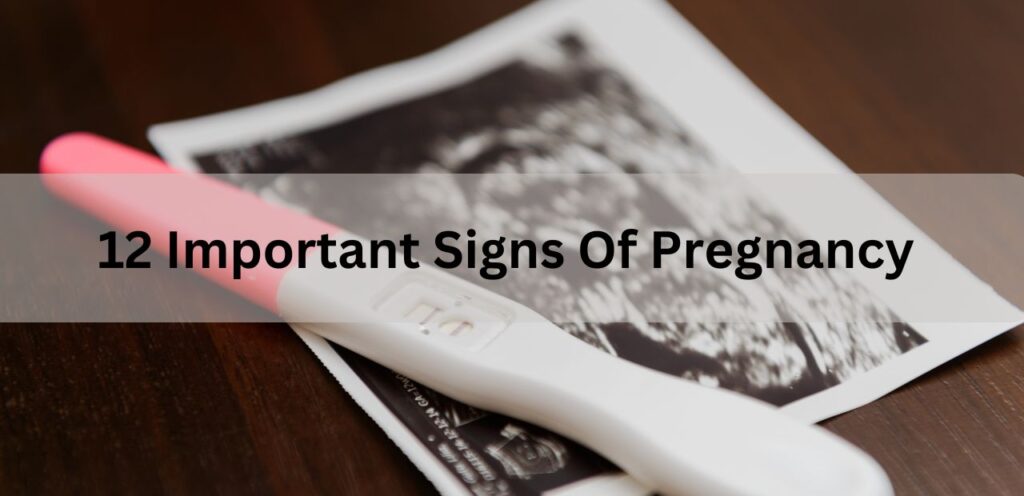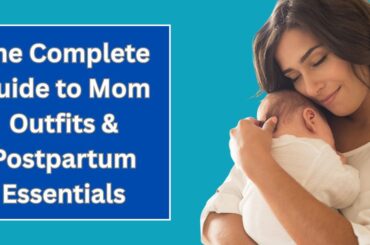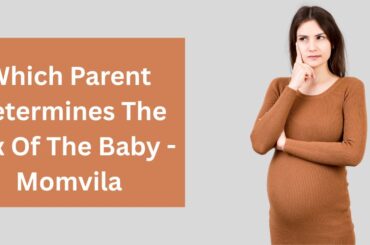Early signs of pregnancy, also known as Important Signs of Pregnancy, may include missed periods, fatigue, nausea, and much more. When you suspect you might be pregnant, you search for any early indications that you will become a mother. Many of the first pregnancy symptoms can manifest before a positive pregnancy test shows up. However, each woman’s experience with first realizing she is pregnant will be unique. So how do you know if you have a bun baking in the oven? Look out for these early pregnancy indicators suggesting you are expecting a child.
You may like to read our blog on Top 5 Best Nutritious Smoothies For Pregnancy
Top 12 Important Signs of Pregnancy
1. A Missing Period
Although missing a period is frequently the first indication, pregnancy is not always implied by this sign. Numerous factors, including changes in birth control prescription or unexpected weight loss, might cause a woman to miss her period. An additional sign of a health problem, such as polycystic ovary syndrome, is missed menstruation. This is why anyone who unexpectedly misses a period should get in touch with a doctor as soon as possible.
2. Fatigue
One of the most prevalent early pregnancy symptoms is fatigue. In the first 12 weeks, it can be at its worst. The amount of progesterone produced by the body increases throughout pregnancy. This is necessary for a healthy pregnancy, but it might also be a factor in your fatigue. Additionally, as the fetus grows, the body has to pump more blood into it. This can cause additional weariness because of the increasing physical demands in the later stages of pregnancy.
3. Weight Gain
You might discover that it’s difficult to button your jeans even before you get a positive pregnancy test. Even though you haven’t started “showing,” your body is preparing space for your uterus as it prepares to grow. As other portions of your body expand, you could realize that your waist is shrinking.
4. Sore Breasts
Do you have sensitive, swollen breasts? Another sign that you may have given birth this cycle is having sore breasts, but sadly, some women experience soreness as a natural part of their monthly cycle, making it difficult to distinguish between the two. If you’ve recently given birth, the pain typically worsens with time, and you can start noticing changes in the appearance of your breasts.
5. Food Aversions and Cravings
You might start to realize that you constantly crave a particular cuisine. Between 50 and 90 percent of American women report having some sort of food urges while they are pregnant. It could be due to rapidly fluctuating hormone levels or the fact that certain foods improve your mood. Some women begin to experience these desires during the first trimester. While some pregnant women may crave pickles constantly, other pregnant women may feel queasy at the mere mention or smell of them. This is an aversion to food. Food aversions can also result from fluctuating hormone levels, just as urges.

6. Mood Swings
You may begin to experience mood changes akin to those you experienced in the days preceding your regular menstruation. These unpredictable mood swings are caused by hormonal changes, particularly in the first trimester when progesterone and estrogen levels alter radically.
7. Morning Sickness
Having nausea? Morning sickness can happen at any time of the day, not only in the morning. To help you feel less nauseous, try some of these cures. Morning sickness typically starts to go away after the first trimester, however, some pregnant women continue to struggle with it. If you have any of these symptoms and a pregnancy test comes back positive, schedule your first prenatal appointment with your OB/GYN for around 8 weeks into the pregnancy. On your path to motherhood, we’ll be there for you every step of the way.
8. Sporting Or Light Bleeding
Spotting or light bleeding can be an early symptom of pregnancy, which many women are startled to find, but only one-third of people experience it. Because doctors think it happens as the fertilized egg attaches (or implants) itself into the uterine lining, this is frequently referred to as implantation bleeding. This is not the same as bleeding that could result from a miscarriage, which is typically heavier.
9. Higher Basal Body Temperature
You probably already know that your basal body temperature (BBT) increases slightly shortly after ovulation if you’ve been monitoring it to improve your chances of becoming pregnant. If you’re expecting, your temperature might not go back down but instead, stay high. Of course, there may be other causes for your violent temper, but Pregnancy may be the cause if it persists for more than a few weeks.
10. Nausea or Vomiting
The most well-known pregnancy symptom is probably morning sickness, which can manifest as a dislike of certain foods, nausea, or even vomiting in some people. This symptom may appear as early as two weeks after conception, or around the time you would miss your period if you were pregnant. This is the fourth week of pregnancy. However, other people might not even feel sick or vomit at all. Additionally, contrary to its name, morning sickness can strike at any hour of the day or night.

11. Headaches
One typical symptom of the first trimester is headaches. She indicated that they might indicate hunger, dehydration, or even caffeine withdrawal. Additionally, according to Cleveland Clinic, the numerous hormonal changes that occur in the body during the first trimester of pregnancy might result in headaches (opens in new tab). During the first trimester of pregnancy, a woman’s blood volume increases, which can cause blood vessels to enlarge and come into touch with nearby nerves.
12. A Hot Flash
Not only can women experience hot flashes and night sweats before menopause, but they can also experience them in the first trimester of pregnancy. Either experiencing hot flashes or nocturnal sweats when pregnant. These alterations may be caused by the rapid variations in hormones like estrogen, according to doctors.
Conclusion
Missed periods, breast changes, exhaustion, abrupt mood swings, and frequent urination are just a few of the early warning symptoms of pregnancy. A person may use a home pregnancy test or seek medical attention if they experience any pregnancy symptoms. A plan for prenatal care should be created for anyone who receives a positive result at home after having it verified by a physician. Get more guides like this from Momvila.






